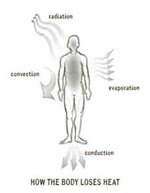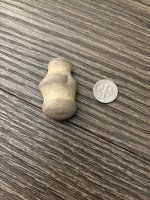DeepseekerADS
Gold Member
- Mar 3, 2013
- 14,880
- 21,725
- Detector(s) used
- CTX, Excal II, EQ800, Fisher 1260X, Tesoro Royal Sabre, Tejon, Garrett ADSIII, Carrot, Stealth 920iX, Keene A52
- Primary Interest:
- Other
Jason Richards
Newsletters
Unless you live in the tropics, winter is likely to bring uncertain weather, including bone-chilling temperatures, severe winds, freezing rain and significant snowfall. Those that have failed to prepare for extreme weather events are in for a world of hurt if the power or heat goes out.
The cold can really get to you, especially if you have to spend time outdoors clearing debris, shoveling snow, or simply walking your dog.
Hypothermia can be deadly so the more we know about it the better and educating yourself regarding the effects of extremely cold weather on the human body is very.
"I Live in a Warm Climate - Why Do I Need to Learn This Stuff?"
If you think that hypothermia and cold weather preparedness is someone else’s problem, think again.
Few people realize that they are in danger of becoming hypothermic anytime a large percentage of their body’s surface area comes in contact with temperatures lower than the body core. You only have to drop to 95 degrees F to feel the effects of hypothermia.
Hypothermia is a condition where the core body temperature drops below 95 degrees Fahrenheit. The normal body core temperature is defined as between 97.5-99.5 degrees Fahrenheit (36.0-37.5 degrees Celsius).
In your efforts to be medically self-reliant, one of the major factors that must be taken into consideration is your environment. If you haven’t prepared for the weather, you have made your environment your enemy, and it is a formidable one.
How Your Body Loses Heat
Your body has various methods it uses to control its internal “core” temperature, either raising it or lowering it to appropriate levels. The body “core“ refers to the major internal organ systems that are necessary to maintain life, such as your brain, heart, liver, and others.
In cold weather, your blood vessels constrict to conserve heat. Muscles “shiver” as a method of heat production. You can voluntarily increase heat by exertion; it is recommended to “keep moving” in cold environments for this reason. It is important to monitor weather conditions as well as the people you’re sending out in the heat or cold.

The body loses heat in various ways:
Evaporation - The body sweats, which releases heat from the core.
Radiation - The body loses heat to the environment anytime that the ambient (surrounding) temperature is below the core temperature (say, 98.6 degrees Fahrenheit
Conduction - The body loses heat when its surface is in direct contact with cold temperatures, as in the case of someone falling from a boat into frigid water. Water, being denser than air, removes heat from the body much faster.
Convection - Heat loss where, for instance, a cooler object is in motion against the body core. The air next to the skin is heated and then removed, which requires the body to use energy to re-heat. Wind Chill is one example of air convection: If the ambient temperature is 32 degrees F but the wind chill factor is at 5 degrees F, you lose heat from your body as if it were actually 5 degrees F.
Direct contact with anything cold, especially over a large area of your body, will cause rapid cooling of your body core temperature.
Physical Effects of Hypothermia
Symptoms of hypothermia: shivering as well as a state of confusion, lack of control and, lethargy. As the condition worsens, speech may become slurred; the patient will appear apathetic and uninterested in helping themselves, or may fall asleep. the colder the body core gets, the slower the brain works. Brain function is supposed to cease at about 68 degrees Fahrenheit.
Newsletters
Unless you live in the tropics, winter is likely to bring uncertain weather, including bone-chilling temperatures, severe winds, freezing rain and significant snowfall. Those that have failed to prepare for extreme weather events are in for a world of hurt if the power or heat goes out.
The cold can really get to you, especially if you have to spend time outdoors clearing debris, shoveling snow, or simply walking your dog.
Hypothermia can be deadly so the more we know about it the better and educating yourself regarding the effects of extremely cold weather on the human body is very.
"I Live in a Warm Climate - Why Do I Need to Learn This Stuff?"
If you think that hypothermia and cold weather preparedness is someone else’s problem, think again.
Few people realize that they are in danger of becoming hypothermic anytime a large percentage of their body’s surface area comes in contact with temperatures lower than the body core. You only have to drop to 95 degrees F to feel the effects of hypothermia.
Hypothermia is a condition where the core body temperature drops below 95 degrees Fahrenheit. The normal body core temperature is defined as between 97.5-99.5 degrees Fahrenheit (36.0-37.5 degrees Celsius).
In your efforts to be medically self-reliant, one of the major factors that must be taken into consideration is your environment. If you haven’t prepared for the weather, you have made your environment your enemy, and it is a formidable one.
How Your Body Loses Heat
Your body has various methods it uses to control its internal “core” temperature, either raising it or lowering it to appropriate levels. The body “core“ refers to the major internal organ systems that are necessary to maintain life, such as your brain, heart, liver, and others.
In cold weather, your blood vessels constrict to conserve heat. Muscles “shiver” as a method of heat production. You can voluntarily increase heat by exertion; it is recommended to “keep moving” in cold environments for this reason. It is important to monitor weather conditions as well as the people you’re sending out in the heat or cold.

The body loses heat in various ways:
Evaporation - The body sweats, which releases heat from the core.
Radiation - The body loses heat to the environment anytime that the ambient (surrounding) temperature is below the core temperature (say, 98.6 degrees Fahrenheit
Conduction - The body loses heat when its surface is in direct contact with cold temperatures, as in the case of someone falling from a boat into frigid water. Water, being denser than air, removes heat from the body much faster.
Convection - Heat loss where, for instance, a cooler object is in motion against the body core. The air next to the skin is heated and then removed, which requires the body to use energy to re-heat. Wind Chill is one example of air convection: If the ambient temperature is 32 degrees F but the wind chill factor is at 5 degrees F, you lose heat from your body as if it were actually 5 degrees F.
Direct contact with anything cold, especially over a large area of your body, will cause rapid cooling of your body core temperature.
Physical Effects of Hypothermia
Symptoms of hypothermia: shivering as well as a state of confusion, lack of control and, lethargy. As the condition worsens, speech may become slurred; the patient will appear apathetic and uninterested in helping themselves, or may fall asleep. the colder the body core gets, the slower the brain works. Brain function is supposed to cease at about 68 degrees Fahrenheit.




